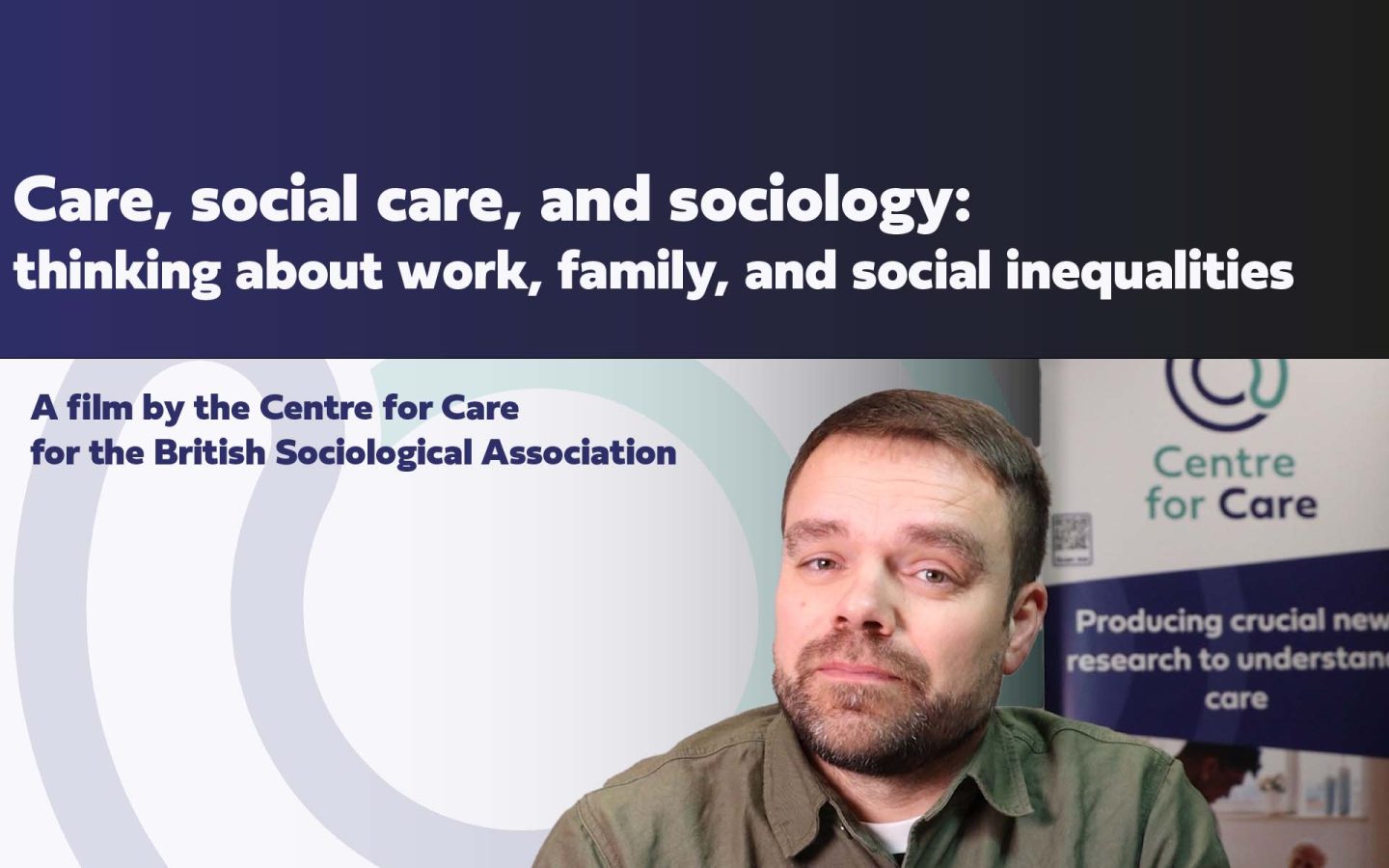Care, Social Care and Sociology – a short film
I have been a keen member of the British Sociological Association (BSA) since early 2017, just after I started my PhD. I am in the association’s youth study group, and I enjoy the annual conference and the opportunities it provides to learn from colleagues and understand more about the wider discipline. I have been privileged to hear fantastic conference keynote lectures, including from Professor Kimberlé Crenshaw in 2018, Professor Imogen Tyler in 2019, and Professor Gurminder Bhambra last year. Their ideas have inspired me to think in new directions beyond the at times narrow, siloed concerns of individual research projects.
My PhD thesis, which is about the perceptions and experiences of young adults doing paid adult social care work in Teesside, north-east England, straddles sociology and social policy. My interest in the topic stemmed partly from my own experiences of care and support, and educational support, work. I am now at the postdoctoral stage of my academic career, and I am fortunate enough to be able to continue working on research related to the adult social care workforce here at the Centre for Care. I am interested in how people learn about care in general and learn to do care work, and in how and which people become paid care workers.
I got an email from the BSA a while back about creating video content for their Discover Sociology site, which provides sociology resources designed for A-level students. Some of the resources are ordered around themes in the A-level sociology curriculum, including care and care work-related ones such as Work, Family, and Social Inequalities. I got the idea to create content in relation to care and sociology, and began to collaborate with colleagues to develop this further.
The keynote speakers I mentioned, the BSA, and the broader sociological community continuously reflect on the question of what – and who – sociology is for. In my research with paid care workers, one of the things I have observed is the lack of visible narrative or story about care as a valued occupation. This is a part of a bigger picture of societal and political undervaluation of this work, and an ongoing ‘lack of care’ for care workers. This manifests itself in worker exploitation, perennially poor pay and conditions, stigma and exclusion, and ongoing struggles to find and retain workers. Part of the role of sociology – or a public sociology – is to shine a light on societal issues, and in my view educating young people is key to raising awareness of care and care work.
Our contribution
With this in mind and as motivation, I wrote a script, which colleagues in the Centre gave me feedback on and helped me to fine tune. I then worked alongside our Digital and Communications Coordinator, Dan Williamson, to bring the script to life. Dan did stellar work on the production, direction, and editing of the film, including painstaking sourcing of images and clips, and the creation of animation scenes. The film is worth watching for his work alone. We are pleased with the result, and hope it is useful, especially for the intended audience of A-level students. We would welcome feedback or any interest in working to develop these ideas and resources. Use our contact form to get in touch.
Watch the film on the British Sociological Association’s YouTube channel here: https://youtu.be/MLGsuuBNmWk
About the author
In the Centre for Care, Duncan works with Dr Liam Foster in the Care Workforce Change research group. They are currently researching care workers’ organising activities, including their role in trade unions, campaign groups and community organising. This piece introduces the study.

